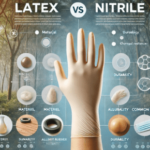Have you ever wondered why some patients feel better after taking a pill with no active ingredients? This phenomenon, known as the placebo effect, plays a significant role in clinical trials. Even though the placebo is not considered as a treatment or a therapy option, it holds a unique importance in the medical world.
If you are following clinical trials and want to know more about the placebo effect, then you are at the right place. In this post, we are going to discuss the placebo effect and its importance in clinical trials.
The placebo effect is nothing but the phenomenon when the patient’s beliefs affect the body and improve the health condition after receiving the dummy treatment. This improvement is not due to the treatment itself but to the patient’s belief in its effectiveness. Placebos can be sugar pills, saline injections, or any other inactive substance given to patients.
Related Posts:
- What You Need to Know About Clinical Trial Temperature Management Solutions
- Remarkable Advances in EDC Systems You Need to Know
- Antidote Strengthens Clinical Trial Enrollment Collaboration
Importance of Placebo Treatment in Clinical Trials
#1 – Identifying Effectiveness
As the clinical trials are meant to gauge the effectiveness of the newly developed medicines, they are compared with the placebo treatment for accuracy.
By including a placebo group, researchers can separate the actual effects of the treatment from the psychological effects caused by patient expectations.
The placebo effect can be powerful and sometimes produce significant changes in a patient’s condition. Hence, including it in the trials is very important to get accurate results.
#2 – Blinding
The clinical trials use the method known as blinding. Single-blind and double-blind studies are very common in the trials. In single-blind studies, the patients have no idea if they are receiving actual medicine or a placebo medicine. In the double-blind method, the doctors and the patients both have no idea about the medicine they are receiving or administering.
Blinding is important because it helps to provide a clearer picture of the treatment’s effectiveness. When neither the patients nor the researchers know who is receiving the treatment, any changes in the health of the participants can be understood as the effectiveness of the actual medicine.
Final Words
Human psychology has a huge impact on health conditions, as people with strong willpower can survive deadly diseases with ease. To avoid any such issues, the researchers use the placebo treatment options to get accurate results. With the single-blind and doubt-blind studies with placebo and regular treatment, the researchers get a clear idea about the effectiveness of the latest medicine.


